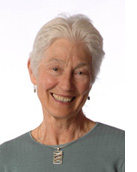 Climate change is widely recognized as the most urgent issue facing planet Earth. The scientific community is clear: we must take strong action to stop practices that are causing global warming or risk passing a tipping point. [1]
Climate change is widely recognized as the most urgent issue facing planet Earth. The scientific community is clear: we must take strong action to stop practices that are causing global warming or risk passing a tipping point. [1]
Yet instead of democratic leadership to protect the wellbeing of the planet ahead of all other interests, the UN is giving a stronger role to the fossil fuel industry in setting global climate change policy.
Currently, the UN Framework Convention on Climate Change (UNFCCC) makes no distinction between civil society groups and industry groups and has no policy on conflict of interest (COI). Corporate lobby groups who receive millions of dollars from the fossil fuel industry participate in UNFCCC meetings.
Officials assert that the UNFCCC is evidence-based and that organisations it allows to participate in its meetings are committed to advancing the goals of the UNFCCC.
The evidence shows, however, that industry organisations participating in UNFCCC meetings, such as the US Chamber of Commerce, the Competitive Enterprise Institute, and BusinessEurope have spent hundreds of millions of dollars obstructing action on climate change. They lobbied to weaken European climate action [2], to kill the US Clean Power Plan [3], and are suing a US city which voted not to allow a pipeline and terminal for oil from the Alberta Tar Sands. [4]
Both in academia [5] and in schools [6], fossil fuel companies are funding materials, speakers, research, training and events that cast doubt on the scientific evidence on climate change and undermine the goals of the UNFCCC. Yet they are being invited to play a bigger role and have greater influence at UNFCCC deliberations.
Countries in the Global South call for COI policy
Countries from the Global South, who are already experiencing devastating harm from climate change, have called for action to ensure the UNFCCC is governed in an independent, transparent, democratic manner and not subject to corporate capture. These countries have repeatedly asked the UNFCCC to adopt “a clear, legal, policy framework to protect the objective, purpose and principles of the Convention and the Paris Agreement from conflicts of interest.” [7]
At a two-week UNFCC inter-sessional meeting in Bonn in May 2017, countries from the Global South once again met opposition from the EU, the US (prior to its announced withdrawal from the Agreement), Australia, Canada, Russia and Saudi Arabia, who claimed that they could not see any issue of COI and refused to allow the words “conflict of interest” to be expressed.
A representative of the World Health Organization (WHO) pointed out that the WHO Framework Convention on Tobacco Control includes a strict COI policy which has for a decade forbidden the tobacco industry and those funded by tobacco interests from participating in its meetings and influencing policy discussions. [8]
A group of environmentalists attending the Bonn meeting sought permission to hold a demonstration, which included a sign protesting corporate capture of the UNFCCC [9]. UN officials refused to permit the words “corporate capture” or any reference to corporations to be used. The protesters went ahead anyway but were ordered to stop by the UNFCCC officials. [10]
If a problem is not allowed to be named, it cannot be addressed. The censorship of this issue by the UN officials provides yet more evidence of the enormity of the problem.
By the end of the Bonn meeting, the US, the EU, Australia et al. had forced the eradication of the words “conflict of interest”, “integrity”, “reputation”, “safeguard” from the proposal by the countries of the Global South. The meeting decided to allow submissions on how to enhance the “openness, transparency, and inclusiveness” of the effective engagement of non-Party stakeholders. [11]
The issue, while severely weakened and postponed, has therefore not been killed. It will be on the agenda of the May 2018 UNFCCC meeting.
The UNFCCC, however, while claiming to be evidence based, continues to deny the evidence of COI and to cover up the issue. In so doing, it betrays its mission and undermines its goals.
Kathleen Ruff is a senior human rights adviser at the Rideau Institute, Ottawa, Canada, and founder and co-coordinator of the Rotterdam Convention Alliance. She is an expert adviser on ethics to the Chair and the Executive Committee of the International Joint Policy Committee of the Societies of Epidemiology and an Honorary Fellow of the Collegium Ramazzini.
Competing interests: KR attended the Bonn meeting as part of a delegation from Corporate Accountability International.
References:
1. Figueres, C. Schellnhuber, HJ, et al. Three years to safeguard our climate. Nature. June 28 2017.
2. Influence Map. BusinessEurope’s narrow climate change vision, page 18. September 2016.
3. Slezk, M. Fossil fuel lobby could be forced to declare interests at UN talks. The Guardian, May 17, 2017. Competitive Enterprise Institute. Challenging the Clean Power Plan: CEI, et al. v. EPA. Docket number: No. 15-1363. Corporate Accountability International. Inside Job: Big Polluters’ Lobbyists On The Inside At The UNFCCC. US chamber of Commerce, page 3. May 2017.
4. Fishell, C. National groups join legal battle to lift South Portland tar sands ban. Bangor Daily News, January 26, 2017.
5. Franta, B & Supran, G. The fossil fuel industry’s invisible colonization of academia. The Guardian, 13 March 2017.
6. Zou, JJ. Oil’s pipeline to America’s schools. Inside the fossil-fuel industry’s not-so-subtle push into K-12 education. Center for Public Integrity. June 15 2017.
7. Submission by Ecuador on behalf of the Like Minded Developing Countries Group For The In-Session Workshop On Opportunities To Further Enhance The Effective Engagement Of Non-Party Stakeholders At UNFCCC SBI 46 (May 2017),
Slezak, M. Marrakech climate talks: giving the fossil fuel lobby a seat at the table. Is it a conflict of interest to have representatives of coal and oil companies at the climate change discussions? The Guardian. November 6, 2016. Slezak, M. Fossil fuel lobby could be forced to declare interests at UN talks. The Guardian. May 17 2017. Tabuchi, H. ‘Vulnerable Voices’ Lash Out as Companies Sway Climate Talks. New York Times. May 16 2017.
8. Gusman, J. Intervention. UNFCCC SBI 46. May 9 2017 at approximately 1 hr 49 min.
10. Video of demonstration, UNFCCC Bonn meeting, https://mobile.twitter.com/AsianPeoplesMvt/status/864481406709268480/video/1.
11.Report of the Subsidiary Body for Implementation on its forty-sixth session, held in Bonn from 8 to 18 May 2017, 117-120.http://www4.unfccc.int/.
